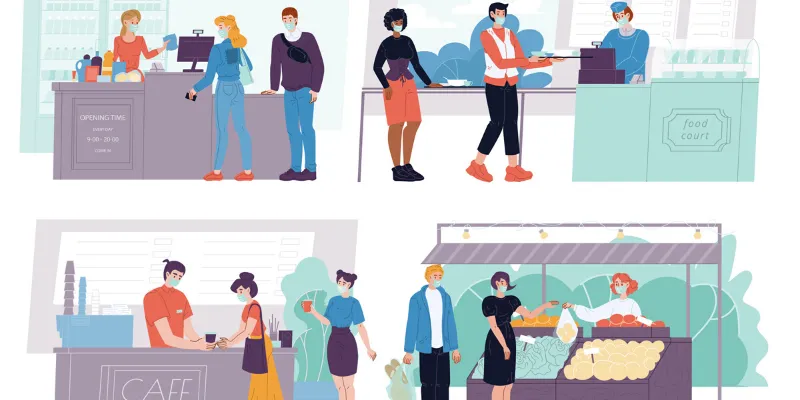Here’s how consumer behaviour will undergo a cultural shift post-COVID-19
The post-COVID-19 world will have a new normal. Here are some changes in consumer behaviour that are already been seen or will soon be seen due to the pandemic.
Weeks and months of lockdown are beginning to alter food choices, consumption, and resulting food waste behaviours. We are becoming more aware of our relationship with food, hygiene and packaging.
More importantly, the connection between food hygiene and the impact on health is becoming evident.
I see the following potential consumer shifts.

Hygiene-first choices
People will migrate to options where hygiene is a priority. There is a cost to maintain hygiene.
Hence, foodservice operators will have to invest in upping the game... bridging the gap between Indian and world standards. Consumers will be happy to shell out the incremental cost with the assurance of greater hygiene.
Local, traceable origin food
With trade suffering, a large part of the population that was unable to source their desired goods during the lockdown will realise that they should limit their waste and consumption to a minimum.
This is in contrast to the last decade, which saw a trend of globalisation of eating habits, where more and more exotic perishables from different parts of the world were being shipped by air. Post-COVID-19, meals will travel less. For example, Deloitte estimates that a meal in the US travels an estimated 1,500 miles from farm to plate.
This will shift and people will become more rational about their food choices. The emphasis will be on local, as the cost of flying exotic goods to far-away destinations will become exorbitant. Quality and safety will overtake the need to spend on specific exquisite imported ingredients.
Greater acceptance of frozen food
There will be a greater shift to frozen food consumption for consumers wishing to cook at home. There has long been a myth that frozen food is not good; there will be a lot of education around this, which will lead to acceptance- the fact is that the technology involved in the frozen food industry and precautions taken are way higher than the fresh food industry.
This is a major cultural shift for India, a country that for generations has revered home-cooked, fresh food. An additional advantage is that due to its longer shelf life, frozen food can result in less wastage in the delivery and storage chain.
Eating in experiences
In the immediate aftermath of COVID-19, thanks to social distancing being strictly enforced, a lot of the people will continue to live in fear of another outbreak. As the lockdown eases, ‘cook at home’ will be replaced by ‘order in’ selectively.
A good home delivered or takeout meal will have its own appeal, thanks to the boredom of home-cooked food settling in. Consequently, food ecommerce will see a spike.
Habits die hard
There is a lot of hype around people only ordering online and not going out. This will be forgotten in six months’ time. We are social beings and we will continue celebrating life by meeting friends, craving the right ambience, music, etc.
Eating out is a social custom of celebration. Indians also love snacking and street food. With hygiene and cleanliness being the primary area of concern after COVID-19, those street food vendors, who have not made hygiene a priority yet will have to upgrade.
Trust
Brands that have invested and continue to invest in systems and processes to deliver consistent quality to consumers will be rewarded. Brands that have earned trust over time stand to benefit in a big way; as consumers will prioritise health safety.
In addition to the above, we will witness unique collaborations. COVID-19 has provided the momentum for food ecosystem collaboration. This is an anti-waste, pro-hygiene wake-up call. Let’s answer it.
Edited by Saheli Sen Gupta
(Disclaimer: The views and opinions expressed in this article are those of the author and do not necessarily reflect the views of YourStory.)







